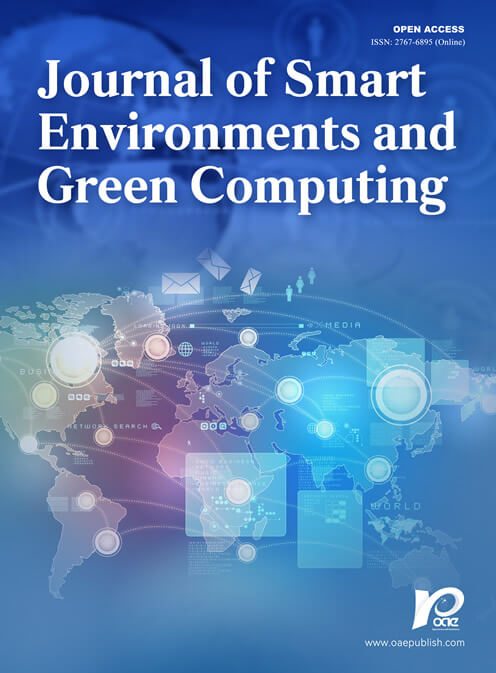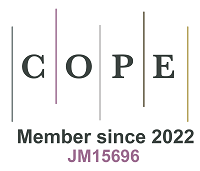REFERENCES
1. Salehi M, Kamalabadi IN. Hybrid recommendation approach for learning material based on sequential pattern of the accessed material and the learner’s preference tree. Knowledge Based Systems 2013;48:57-69.
2. Castro F, Vellido A, Nebot A, Mugica F. Applying data mining techniques to e-learning problems. In: Evolution of teaching and learning paradigms in intelligent environment. Springer; 2007. pp. 183-221.
3. Ricci F, Rokach L, Shapira B, Kantor PB. Recommender systems handbook 1st ed. Berlin, Heidelberg: Springer-Verlag; 2010.
4. Adomavicius G, Tuzhilin A. Toward the next generation of recommender systems: A survey of the state-of-the-art and possible extensions. IEEE Transactions on Knowledge and Data Engineering 2005;17:734-49.
5. Lu J, Wu D, Mao M, Wang W, Zhang G. Recommender system application developments: A survey. Decision Support Systems 2015;74:12-32.
6. Drachsler H, Hummel HG, Koper R. Personal recommender systems for learners in lifelong learning networks: The requirements, techniques and model. International Journal of Learning Technology 2008;3:404-23.
7. Thai-Nghe N, Drumond L, Krohn-Grimberghe A, Schmidt-Thieme L. Recommender system for predicting student performance. Procedia Computer Science 2010;1:2811-19.
8. Segal A, Gal K, Shani G, Shapira B. A difficulty ranking approach to personalization in e-learning. International Journal of Human Computer Studies 2019;130:261-72.
9. Aher SB, Lobo L. Combination of machine learning algorithms for recommendation of courses in E-Learning System based on historical data. Knowledge Based Systems 2013;51:1-14.
10. Dwivedi P, Kant V, Bharadwaj KK. Learning path recommendation based on modified variable length genetic algorithm. Education and Information Technologies 2018;23:819-36.
11. Bennett J, Lanning S. The netflix prize. In: Proceedings of KDD Cup and Workshop 2007. p. 35.
12. Lu J, Zhang Gq, Zhang Q. Recommender Systems: Advanced Developments World Scientific; 2020.
13. Burke R. Hybrid recommender systems: survey and experiments. User Modeling and User Adapted Interaction 2002;12:331-70.
14. Lops P, Jannach D, Musto C, Bogers T, Koolen M. Trends in content-based recommendation. User Modeling and User Adapted Interaction 2019;29:239-49.
15. Wang D, Liang Y, Xu D, Feng X, Guan R. A content-based recommender system for computer science publications. Knowledge Based Systems 2018;157:1-9.
16. Pazzani MJ, Billsus D. Content-based recommendation systems. In: The adaptive web; 2007:325-41.
17. Mikolov T, Sutskever I, Chen K, Corrado GS, Dean J. Distributed representations of words and phrases and their compositionality. Advances in Neural Information Processing Systems 2013;26:3111-19.
18. Chen T, Hong L, Shi Y, Sun Y. Joint text embedding for personalized content-based recommendation. arXiv preprint arXiv:170601084 2017.
19. Ye M, Tang Z, Xu J, Jin L. Recommender system for e-learning based on semantic relatedness of concepts. Information 2015;6:443-53.
20. Shu J, Shen X, Liu H, Yi B, Zhang Z. A content-based recommendation algorithm for learning resources. Multimedia Systems 2018;24:163-73.
21. Salehi M, Kmalabadi IN. A hybrid attribute–based recommender system for e-learning material recommendation. Ieri Procedia 2012;2:565-70.
22. Hariadi AI, Nurjanah D. Hybrid attribute and personality based recommender system for book recommendation. In: 2017 International Conference on Data and Software Engineering (ICoDSE); 2017:1-5.
23. Salehi M. Application of implicit and explicit attribute based collaborative filtering and BIDE for learning resource recommendation. Data & Knowledge Engineering 2013;87:130-45.
24. Lu J. A personalized e-learning material recommender system. In: International Conference on Information Technology and Applications 2004.
25. Wu D, Lu J, Zhang G. A fuzzy tree matching-based personalized e-learning recommender system. IEEE Transactions on Fuzzy Systems 2015;23:2412-26.
26. Li L, Yang Z, Liu L, Kitsuregawa M. Query-URL bipartite based approach to personalized query recommendation. In: AAAI 2008;8:1189-94.
27. Meng F, Gao D, Li W, Sun X, Hou Y. A unified graph model for personalized query-oriented reference paper recommendation. In: Proceedings of the 22nd ACM International Conference on Information & Knowledge Management; 2013:1509-12.
28. Cai X, Han J, Li W, Zhang R, Pan S, et al. A three-layered mutually reinforced model for personalized citation recommendation. IEEE Transactions on Neural Networks and Learning Systems 2018;29:6026-37.
29. Su JH, Hong TP, Li JY, Su JJ. Personalized content-based music retrieval by user-filtering and query-refinement. In: 2018 Conference on Technologies and Applications of Artificial Intelligence (TAAI); 2018:177-80.
30. Baizal ZA, Widyantoro DH, Maulidevi NU. Query refinement in recommender system based on product functional requirements. In: 2016 International Conference on Advanced Computer Science and Information Systems (ICACSIS); 2016:309-14.
31. Mbipom B, Massie S, Craw S. An e-learning recommender that helps learners find the right materials. In: The 32nd AAAI Conference on Artificial Intelligence; 2018:7928-33.
32. Souali K, Rahmaoui O, Ouzzif M. Introducing a traceability based recommendation approach using chatbot for e-learning platforms. In: International Conference on Advanced Intelligent Systems for Sustainable Development; 2018:346-57.
33. Tian F, Gao P, Li L, Zhang W, et al. Recognizing and regulating e-learners’ emotions based on interactive Chinese texts in e-learning systems. Knowledge Based Systems 2014;55:148-64.
34. Koren Y, Bell R, Volinsky C. Matrix factorization techniques for recommender systems. Computer 2009;42:30-37.
35. Bobadilla J, Serradilla F, Hernando A, et al. Collaborative filtering adapted to recommender systems of e-learning. Knowledge Based Systems 2009;22:261-65.
36. Bobadilla J, Ortega F, Hernando A, Gutiérrez A. Recommender systems survey. Knowledge Based Systems 2013;46:109-32.
37. Shani G, Shapira B. Edurank: A collaborative filtering approach to personalization in e-learning. Educational data mining 2014:68-75.
38. Dey AK, Abowd GD, Salber D. A conceptual framework and a toolkit for supporting the rapid prototyping of context-aware applications. Human Computer Interaction 2001;16:97-166.
39. Amasha MA, Areed MF, Alkhalaf S, Abougalala RA, Elatawy SM, et al. The future of using Internet of Things (IoTs) and context-aware technology in e-learning. In: Proceedings of the 2020 9th International Conference on Educational and Information Technology; 2020:114-23.
40. Gallego D, Barra E, Aguirre S, Huecas G. A model for generating proactive context-aware recommendations in e-learning systems. In: 2012 Frontiers in Education Conference Proceedings; 2012:1-6.
41. Moore P, Zhao Z, Van Pham H. Towards cloud-based personalised student-centric context-aware e-learning pedagogic systems. In: Conference on Complex, Intelligent, and Software Intensive Systems; 2019:331-42.
42. Shen L, Wang M, Shen R. Affective e-learning: Using “emotional” data to improve learning in pervasive learning environment. Journal of Educational Technology & Society 2009;12:176-89.
43. Takano K, Li KF. An adaptive e-learning recommender based on user’s web-browsing behavior. In: 2010 International Conference on P2P, Parallel, Grid, Cloud and Internet Computing; 2010:123-31.
44. De Meo P, Messina F, Rosaci D, Sarné GM. Combining trust and skills evaluation to form e-Learning classes in online social networks. Information Sciences 2017;405:107-22.
45. Hu J, Zhang W. Community collaborative filtering for e-Learning. In: 2008 International Conference on Computer and Electrical Engineering; 2008:593-97.
46. Rafaeli S, Dan-Gur Y, Barak M. Social recommender systems: Recommendations in support of e-learning. International Journal of Distance Education Technologies (IJDET) 2005;3:30-47.
47. Klašnja-Milićević A, Vesin B, Ivanović M. Social tagging strategy for enhancing e-learning experience. Computers & Education 2018;118:166-81.
48. Zhang S, Yao L, Sun A, Tay Y. Deep learning based recommender system: A survey and new perspectives. ACM Computing Surveys (CSUR) 2019;52:1-38.
49. Sun A, Li YJ, Huang YM, Li Q. Using facial expression to detect emotion in e-learning system: A deep learning method. In: International Symposium on Emerging Technologies for Education; 2017:446-55.
50. Zhou Y, Huang C, Hu Q, Zhu J, Tang Y. Personalized learning full-path recommendation model based on LSTM neural networks. Information Sciences 2018;444:135-52.
51. Wang X, Zhang Y, Yu S, Liu X, Yuan Y, et al. E-learning recommendation framework based on deep learning. In: 2017 IEEE International Conference on Systems, Man, and Cybernetics (SMC) IEEE; 2017. pp. 455-60.
52. Chanaa A, El Faddouli Ne. Deep learning for a smart e-learning system. In: Proceedings of the 2nd International Conference on Smart Digital Environment; 2018:197-202.
53. Tarus JK, Niu Z, Mustafa G. Knowledge-based recommendation: A review of ontology-based recommender systems for e-learning. Artificial intelligence review 2018;50:21-48.
54. Shen Lp, Shen Rm. Ontology-based learning content recommendation. International Journal of Continuing Engineering Education and Life Long Learning 2005;15:308-17.
55. Fraihat S, Shambour Q. A framework of semantic recommender system for e-learning. Journal of Software 2015;10:317-30.
56. Zeng Q, Zhao Z, Liang Y. Course ontology-based user’s knowledge requirement acquisition from behaviors within e-learning systems. Computers & Education 2009;53:809-18.
57. Tarus JK, Niu Z, Yousif A. A hybrid knowledge-based recommender system for e-learning based on ontology and sequential pattern mining. Future Generation Computer Systems 2017;72:37-48.
58. Bouihi B, Bahaj M. An ontology-based architecture for context recommendation system in e-learning and mobile-learning applications. In: 2017 International Conference on Electrical and Information Technologies (ICEIT) IEEE; 2017. pp. 1-6.
59. Chu HC, Chen TY, Lin CJ, Liao MJ, Chen YM. Development of an adaptive learning case recommendation approach for problem-based e-learning on mathematics teaching for students with mild disabilities. Expert Systems with Applications 2009;36:5456-68.
60. Ferreira-Satler M, Romero FP, Menendez-Dominguez VH, Zapata A, Prieto ME. Fuzzy ontologies-based user profiles applied to enhance e-learning activities. Soft Computing 2012;16:1129-41.
61. Wan S, Niu Z. An e-learning recommendation approach based on the self-organization of learning resource. Knowledge Based Systems 2018;160:71-87.
62. Wan S, Niu Z. A hybrid e-learning recommendation approach based on learners’ influence propagation. IEEE Transactions on Knowledge and Data Engineering 2019;32:827-40.
63. Shi D, Wang T, Xing H, Xu H. A learning path recommendation model based on a multidimensional knowledge graph framework for e-learning. Knowledge Based Systems 2020:105618.
64. Çano E, Morisio M. Hybrid recommender systems: A systematic literature review. Intelligent Data Analysis 2017;21:1487-524.
65. Turnip R, Nurjanah D, Kusumo DS. Hybrid recommender system for learning material using content-based filtering and collaborative filtering with good learners’ rating. In: 2017 IEEE Conference on e-Learning, e-Management and e-Services; 2017:61-66.
66. Khribi MK, Jemni M, Nasraoui O. Toward a hybrid recommender system for e-learning personalization based on web usage mining techniques and information retrieval. In: E-Learn: World Conference on E-Learning in Corporate, Government, Healthcare, and Higher Education Association for the Advancement of Computing in Education (AACE); 2007. pp. 6136-45.
67. Tarus JK, Niu Z, Kalui D. A hybrid recommender system for e-learning based on context awareness and sequential pattern mining. Soft Computing 2018;22:2449-61.
68. Shin H, Kim S, Shin J, Xiao X. Privacy enhanced matrix factorization for recommendation with local differential privacy. IEEE Transac tions on Knowledge and Data Engineering 2018;30:1770-82.
69. Yang Q, Liu Y, Chen T, Tong Y. Federated machine learning: Concept and applications. ACM Transactions on Intelligent Systems and Technology (TIST) 2019;10:1-19.
70. Lu J, Liu A, Dong F, Gu F, Gama J, et al. Learning under concept drift: A review. IEEE Transactions on Knowledge and Data Engineering 2018;31:2346-63.
71. Ennouamani S, Mahani Z. An overview of adaptive e-learning systems. In: 2017 Eighth International Conference on Intelligent Computing and Information Systems (ICICIS) IEEE; 2017. pp. 342-47.
72. Teng SY, Li J, Ting LPY, Chuang KT, Liu H. Interactive unknowns recommendation in e-learning systems. In: 2018 IEEE International Conference on Data Mining (ICDM) IEEE; 2018. pp. 497-506.
73. Zhou P, Wang K, Guo L, Gong S, Zheng B. A Privacy-Preserving Distributed Contextual Federated Online Learning Framework with Big Data Support in Social Recommender Systems. IEEE Transactions on Knowledge and Data Engineering 2019.
74. Gao C, Huang C, Lin D, Jin D, Li Y. DPLCF: Differentially private local collaborative filtering. In: Proceedings of the 43rd International ACM SIGIR Conference on Research and Development in Information Retrieval; 2020:961-70.
75. Wang W, Zhang G, Lu J. Hierarchy visualization for group recommender systems. IEEE Transactions on Systems, Man, and Cybernetics: Systems 2017;49:1152-63.
76. Barria-Pineda J, Akhuseyinoglu K, Brusilovsky P. Explaining need-based educational recommendations using interactive open learner models. In: Adjunct Publication of the 27th Conference on User Modeling, Adaptation and Personalization; 2019:273-77.
77. Dwivedi S, Roshni VK. Recommender system for big data in education. In: 2017 5th National Conference on E-Learning & E-Learning Technologies (ELELTECH) IEEE; 2017. pp. 1-4.
78. Dahdouh K, Dakkak A, Oughdir L, Ibriz A. Large-scale e-learning recommender system based on Spark and Hadoop. Journal of Big Data 2019;6:1-23.






